Jesse McQueen: Better From Here
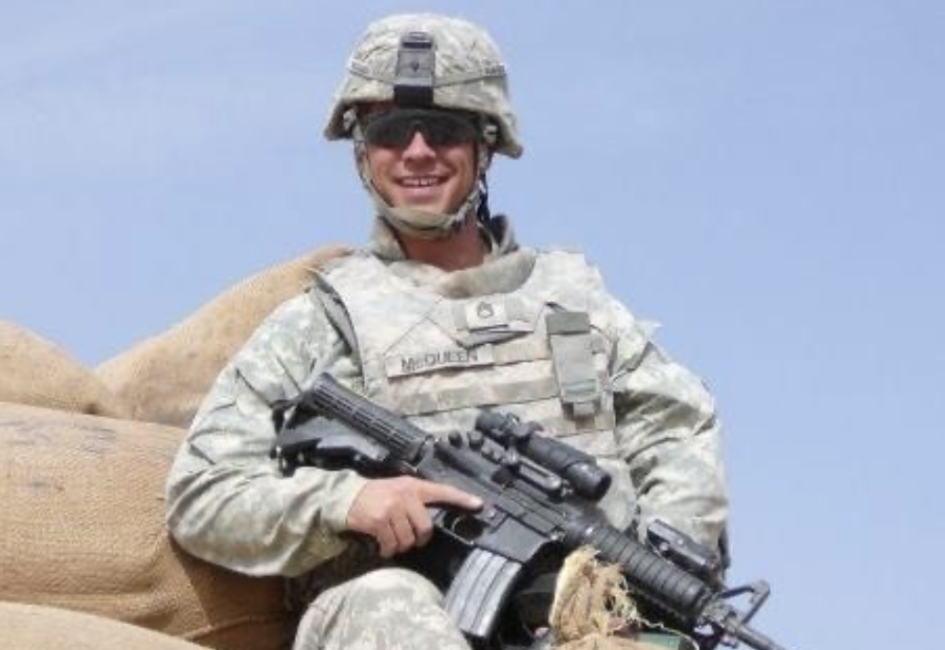

The first time Jesse McQueen felt like he had a good grip on his life, he was 19 years old and standing in line at Fort Benning, Georgia. It was September 11, 2001.
Three days earlier, he’d raised his right hand and enlisted in the U.S. Army.
He had no idea what he was signing up for.
“We were in the middle of getting issued our BDUs when everything stopped,” Jesse remembers. “A civilian in the office started crying, and we didn’t know if it was part of the training. Then we got the briefing — America was under attack.”
Jesse had joined the Army without much direction, but with a powerful pull toward purpose. One of five brothers and two sisters, raised near the Mason-Dixon line between Pennsylvania and Maryland, he came from a close-knit family where honor, service, and looking out for each other were second nature. His uncle, a seasoned Army veteran, had suggested military service might help him find focus. Jesse took the advice to heart.
“I was capable, just needed a direction,” he said.
What followed was a trial by fire. He signed up for infantry, went through the Ranger Indoctrination Program, and was preparing to attend Ranger School when a training injury ended that trajectory. Then came deployments to Iraq and Afghanistan, a marriage forged in war, and a career that kept the tempo high and the pressure higher.
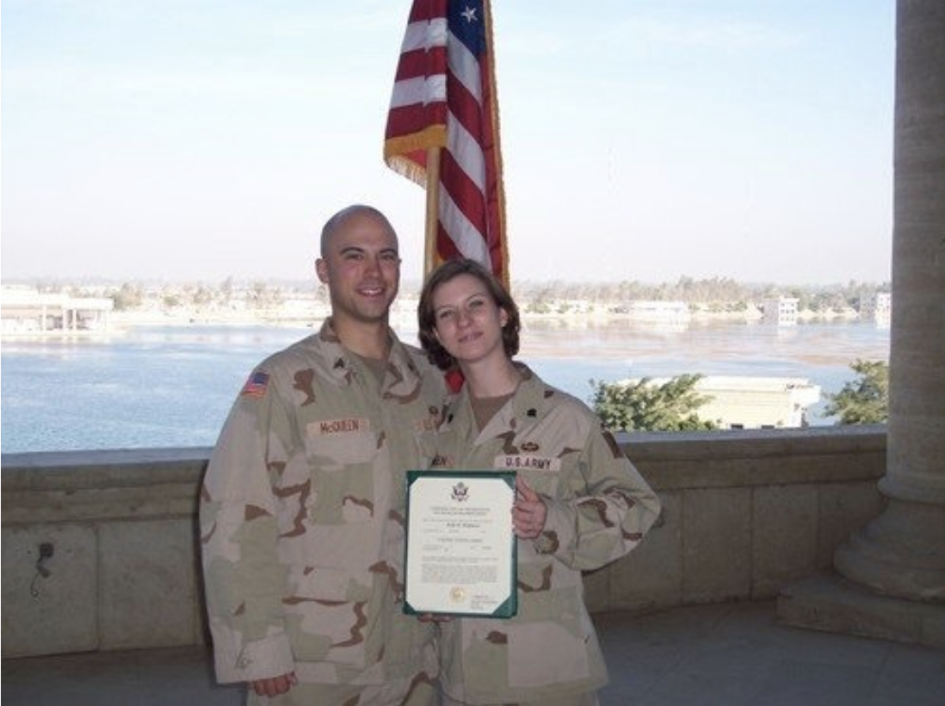
At the same time, Jesse was becoming something else: a husband, a father, a man trying to hold everything together while the seams quietly unraveled.
The turning point came when he met Kelly.
Jesse met Kelly, a fellow service member, shortly before deploying to Baghdad. Their connection started as friendship, then bloomed when they were assigned to the same base. They eloped mid-deployment and married on a beach in Australia. When they returned to Baghdad, Jesse’s battalion commander moved their gear into a trailer near the flight line so they could live together — sort of. Helicopters shook the walls all night.
“I promised her it would only get better from there,” Jesse laughs.
At the time, it was a joke — half-sincere, half-hopeful. But looking back, that promise became a thread that carried them forward. A vow to not just survive, but to create something better.
Both transitioned to military intelligence but stayed embedded with infantry units. When they deployed to Afghanistan, they were stationed in separate, high-conflict zones, and communication was limited. Jesse describes the experience as living through two simultaneous perspectives: one as a soldier, and the other as a spouse worried for his deployed wife.
“It was awful. We had no idea if the other was okay. You live with that constant tension,” he said.
Eventually, they came home and made a pivotal decision. Jesse and Kelly agreed they wouldn’t raise kids while on active duty. They had seen too many friends watch their children grow up through photographs. They didn’t want to miss the little moments, the laughter, the chance to be fully present. In 2009, both separated from the military.
But even back home, the battles continued.
Jesse threw himself into a government career in counterterrorism — fast-paced, high-stress, and familiar. He performed well. On paper, he was thriving. But at home, everything was crumbling.
“I was functioning, but I was a mess,” he says. “And I didn’t know where to go for help.”
He tried the VA. They prescribed medications that didn’t work for him. He felt the stigma of post-traumatic stress, the fear that asking for help might cost him his career. Years went by. He and Kelly eventually separated, though they continued co-parenting. And then, one day in 2016, Jesse stumbled across a news article about the Boulder Crest Foundation.
It felt like fate.
“It wasn’t therapy,” he remembers thinking. “It was training. And it was right down the road.”
He filled out an application for the Warrior PATHH program, unsure of what to expect. A former Army Ranger and then-program director, called him personally.
“He said, ‘Get over here. You need to be in the next class.'”
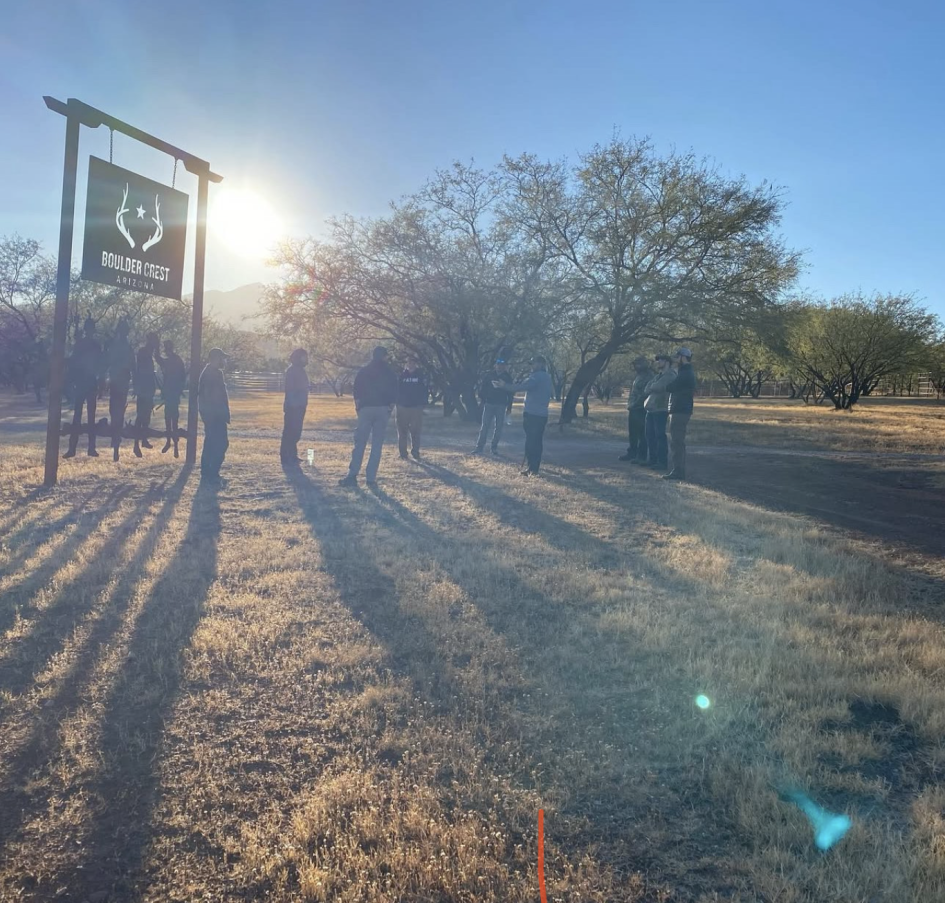
At Boulder Crest, Jesse found what he hadn’t realized he was missing: space to pause, process, and reframe his experiences. He didn’t have to hide his pain. He didn’t have to explain it. He didn’t have to be fixed. He just had to be willing.
“It helped me realize I wasn’t done. I wasn’t broken. I had a purpose. And I could use what I’d been through to help others. That changed everything for me.”
Posttraumatic Growth (PTG) gave Jesse a new foundation. He became a better father. A more honest man. A more open and grounded presence for his family. And Kelly noticed the shift right away.
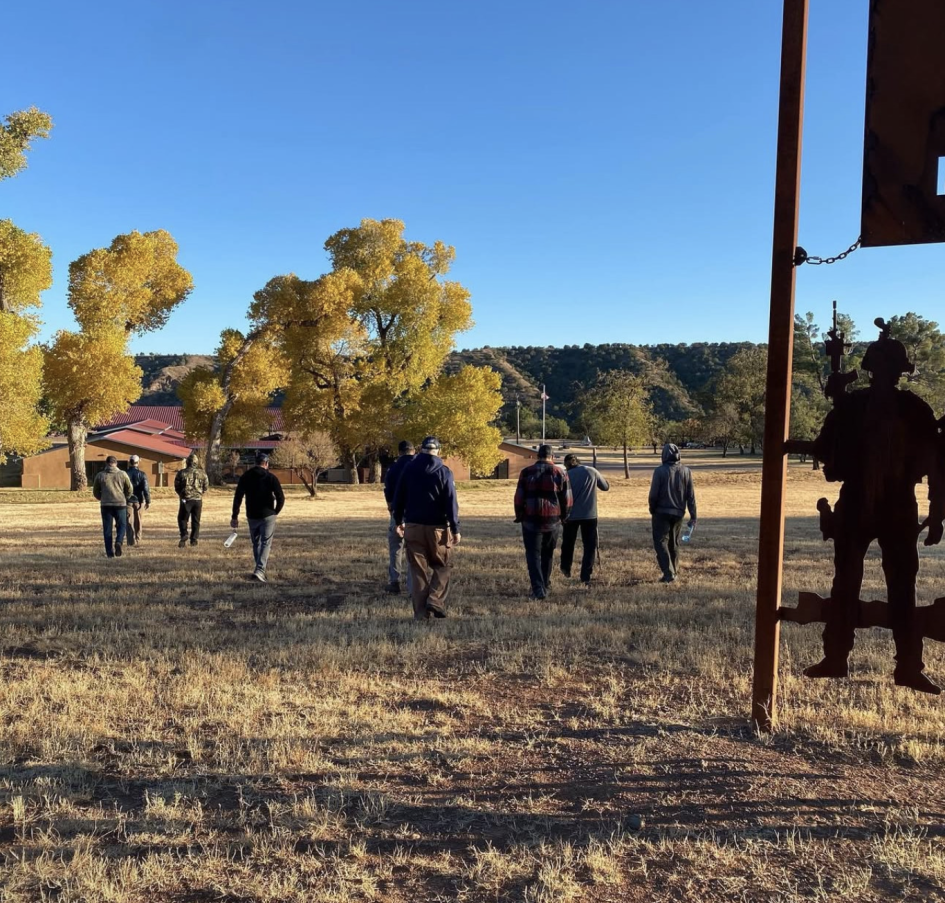
“She said she saw it in me. And that meant everything.”
A year later, Kelly participated in a Boulder Crest program of her own — an experience that helped her begin her path forward.
Kelly’s story carried its own weight. As a combat veteran and a mother, she had held immense burdens. It wasn’t until Jesse’s transformation that she realized how much she had been carrying alone.
Their healing was no longer a solo journey.
Jesse and Kelly’s time at Boulder Crest helped them reconnect, reshape their marriage, and recommit to the kind of intentional parenting they had always hoped to practice. Today, their kids — now pre-teens — see a different version of their parents: two people who are open about their struggles, consistent in their self-care, and dedicated to showing up.
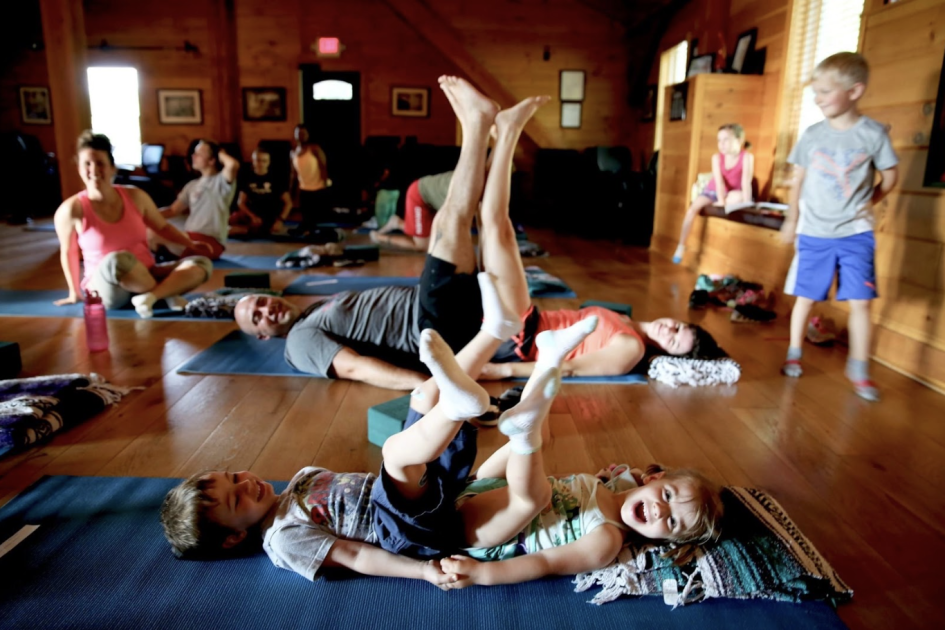
“They see me meditate. They see me work out. They know I do those things for my mental health,” Jesse says. “I tell them, this is how we stay healthy inside and out.”
For Jesse, Boulder Crest didn’t just offer healing — it sparked a deeper calling, and the transformation hasn’t stopped with their household. Jesse became a PATHH Guide, helping others begin the same journey that saved his life. He’s also a regular Boulder Crest volunteer, and whether he’s cleaning dishes or welcoming a new class of participants, he knows the impact is real. He sees it in their eyes.
“Every time I see one of the participants, I think, ‘Wow, they’re really getting a good chance now.’”
He also advocates for veterans in high-clearance roles who are hesitant to seek help.
“Getting help doesn’t make you weak,” he says. “It makes you trustworthy. You can’t be compromised by something you’ve already owned.”
Jesse continues to pay it forward in ways big and small — volunteering, guiding, mentoring, and simply showing up. Because for him, Boulder Crest gave him a new framework for living, a renewed sense of purpose, and the strength to build something lasting from the inside out.
And in doing so, he kept the promise he made in that trailer so many years ago. Not just to Kelly, but to himself, to their kids, and to every veteran who still believes a better life is possible.
“I promised it would only get better from here,” Jesse said. “And it has.”
To learn more about Boulder Crest’s life-changing programs and how you can support veterans like Jesse on their path to Posttraumatic Growth, visit www.bouldercrest.org.
Your support powers life-changing programs offered at no charge to veterans, military, first responders, and their families. With your help, our Warriors won't just survive — they'll thrive.

We have received your email sign-up. Please tell us more about yourself.